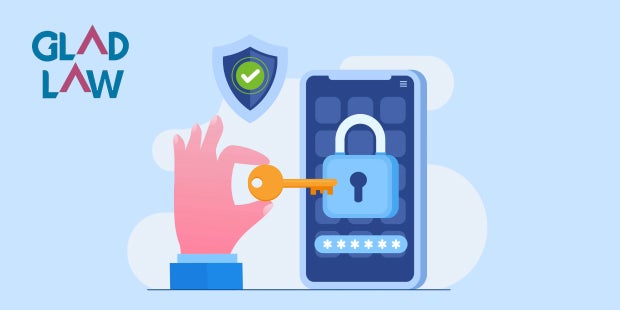In the constantly evolving online landscape, it can be difficult to keep up on how to avoid the threats out there. GLBTQ Legal Advocates & Defenders (GLAD Law) is a leading legal services and civil rights organization dedicated to justice and equality for LGBTQ+ people and people with HIV. We’re passing along some tips from their new Digital Safety Guide on the best ways to protect your personal information.
Minimizing Risk
As public figures, authors can be susceptible to online attacks and harassment, so it’s essential to make sure your online presence is protected. There are a lot of easy-to-use tactics to keep your passwords and personal data secure.
- Protect Your Passwords: Create strong passwords and use a password manager so you can easily recall them and be alerted if they are compromised. Create a separate email account for password recovery, in case your usual address is also compromised.
- Use Two-Factor Authentication: Many applications and online platforms let you opt in to this. You can also use an authenticator key app like DUO.
- Limit the Info You Post Online: Accounts for personal use are often targets for attack. Remove identifying information like your address from your platforms. Turn off location services, AirDrop, and Bluetooth when you aren’t using them.
- Navigate Safely: Make sure the websites you browse are secure and be wary of phishing scams. If you are asked to share personal information, be sure that the person you are communicating with is who they say they are.
Dealing with Doxing or Harassment
Doxing is the act of revealing someone’s personal information online. This is usually done as an act of harassment or bullying—think leaking someone’s photo ID with their legal name, or a stranger posting a photo of someone outside their house for other people on the internet to see.
Fighting back can be tricky, since doxing itself is not a crime—though depending on the circumstances, it can be classified as stalking, harassment, or identity theft, among other crimes. However, there are limited resources to help an author address the situation quickly and take down sensitive information. Most social media platforms have rules against doxing and online harassment. Make sure to frequently refresh your knowledge of the terms of service for the platforms you use. You can report specific offending posts or accounts for harassment. Some platforms, including Instagram and TikTok, can limit comments to prevent certain language or harassing messages from coming through. There are also some paid services out there that can help you take down your personal information wherever it surfaces.
Doxing and online harassment are no joke and if you find yourself experiencing them, feel free to reach out to your publishing team for help.
For more detailed information and resources on protecting your online safety, check out GLAD’s Digital Safety Guide.


